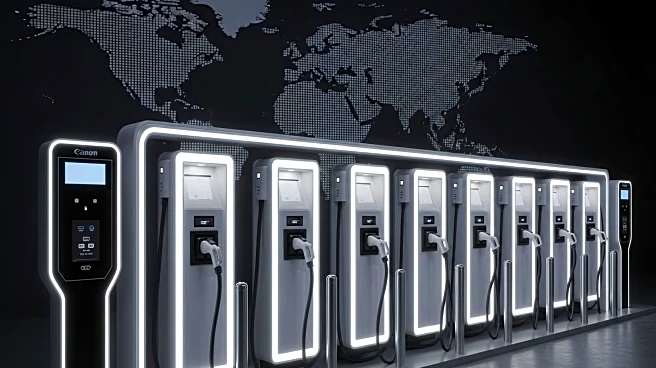What's Happening?
European automakers are set to save approximately 500-600 million euros monthly following the implementation of a trade deal between the U.S. and the European Union. The deal, which took effect with the publication in the U.S. Federal Register, reduces tariffs on most EU goods from 27.5% to 15%. This reduction is retroactive to August 1, providing significant financial relief to EU automakers. The deal has been supported by most EU member states despite criticism from business associations and some European Parliament members.
Why It's Important?
The reduction in tariffs is a crucial development for EU automakers, easing the financial burden and potentially enhancing competitiveness in the U.S. market. This move may encourage further trade and investment between the U.S. and EU, fostering economic growth and cooperation. However, the higher-than-average tariff rate compared to pre-Trump levels remains a point of contention, highlighting ongoing trade tensions. The deal's impact on the automotive industry could influence broader economic relations and negotiations between the two regions.
What's Next?
EU lawmakers are expected to support the trade deal following detailed exchanges and presentations. The agreement may pave the way for further negotiations on trade and economic collaboration between the U.S. and EU. Stakeholders will likely monitor the deal's implementation and its effects on trade dynamics, potentially advocating for additional tariff reductions or adjustments. The outcome of these discussions could shape future trade policies and economic strategies.












